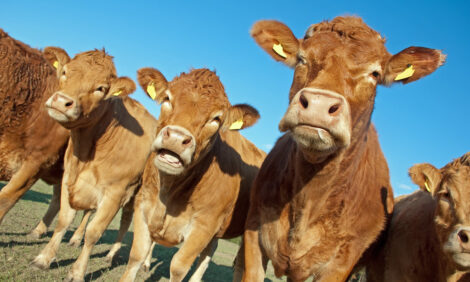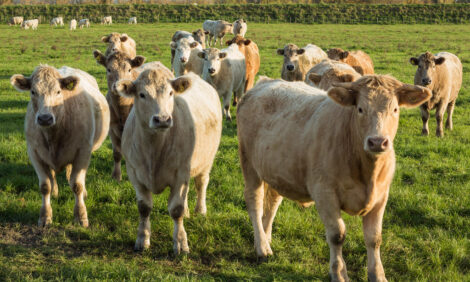



Qatar Dairy Farms Achieve 47% Self-sufficiency Post Siege; Poultry Achieves 75%
QATAR - Qatar has achieved 75 per cent self-sufficiency in poultry and over 47 per cent in dairy production and after the blockade an increase of 25 per cent and 20 per cent was recorded respectively."The credit of a sudden increase goes to the dairy and poultry farms which acted quickly for increasing their production capacity to meet growing demands of local market availing the opportunity to grab the market shares of blockading countries," said Farhud Hadi Al Hajari, Head of the Livestock Department at the Ministry of Municipality and Environment.
The self-sufficiency rate of the country in poultry production had reached 75 per cent from 50 per cent during the pre-blockade period, Mr Al Hajari told a talk show aired by Al Rayyan TV under the programme "Tarheeb" recently.
Mr Al Hajari said Qatar had also achieved 47.3 per cent self-sufficiency in dairy products from 27.5 per cent recorded before the blockade. However, he said the self-sufficiency in red meat production witnessed marginal change from 14 per cent to 14.2 per cent.
The Head of the Livestock Department also revealed new projects that aim at bringing Qatar in the position of export for dairy and poultry products.
"The Department issued a total of 25 new licences for dairy and poultry farms after the blockade," said Mr Al Hajari. He said that construction works on 13 projects – 10 dairy farms and three poultry farms has begun and existing farms were also being expanded to increase the production.
"With the completion of 13 new projects and expansion of existing farms, the self-sufficiency rate of the country in milk production will reach to 196.6 per cent," said Mr Al Hajari adding that additional production would be surplus that could be exported. He said that the daily milk consumption of the country ranges between 600 and 650 tonnes.
"With the help of new projects, the local poultry products will cover 257 per cent need of local market making huge surplus in chicken and egg production," said Mr Al Hajari. He said the production of red meat would also reach to 21 per cent of total need of the country.
"We sped up the projects immediately after the siege however the plans were already there to meet the requirements of local market. We were moving according to our plans looking for an alternative source and expanding the facilities to increase the production but the blockade changed everything drastically," he added.
Mr Al Hajari said that livestock sector was growing at the rate of 21 per cent during past five years. Recent statistics reveal the population of livestock including goat, sheep, cow and camels crossed one million in the country.
Speaking on the sudden rise of dairy and poultry production, Mr Al Hajari said that credit goes to the farms that worked day and night to increase their capacity to meet the growing demand in the local market.
"We visited the farms after blockade and were surprised to see their preparations to increase the capacity," he added. Mr Al Hajari also thanked consumers for preferring local products. "All products taken to the markets are being sold out, nothing is left to be brought back to the stores," he added.
Regarding the state support to the farms, Mr Al Hajari said that the Department provides all necessary support to business owners like conducting feasibly studies, guidance for suitable projects and closely following up the projects to remove any obstacle in the way of the implementation.
Meanwhile, a local dairy farm has imported new batch of cows from different sources. A number of dairy and poultry farms that were producing only for personal use before the blockade have expanded their farms to commercial level.
"We started breeding sheep and chicken for commercial purpose about three months ago when the demand surged," Mohamad Absarul, in-charge of a livestock farm at Umm Salal suburb told The Peninsula. "Now we have about 3,000 sheep and 2,000 chicken. We produce about 30 crates egg per day," he added.
TheCattleSite News Desk


